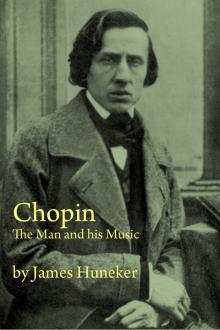Haydn by J. Cuthbert Hadden (books you need to read TXT) 📖

- Author: J. Cuthbert Hadden
Book online «Haydn by J. Cuthbert Hadden (books you need to read TXT) 📖». Author J. Cuthbert Hadden
[At this point in the original book, a facsimile of the first play-bill for "The Creation" takes up the entire next page.]
Next year the score was published by Breitkopf & Hartel, and no fewer than 510 copies, nearly half the number subscribed for, came to England. The title-page was printed both in German and English, the latter reading as follows: "The Creation: an Oratorio composed by Joseph Haydn, Doctor of Musik, and member of the Royal Society of Musik, in Sweden, in actuel (sic) service of His Highness the Prince of Esterhazy, Vienna, 1800." Clementi had just set up a musical establishment in London, and on August 22, 1800, we find Haydn writing to his publishers to complain that he was in some danger of losing 2000 gulden by Clementi's non-receipt of a consignment of copies.
London Performances
Salomon, strangely enough, had threatened Haydn with penalties for pirating his text, but he thought better of the matter, and now wrote to the composer for a copy of the score, so that he might produce the oratorio in London. He was, however, forestalled by Ashley, who was at that time giving performances of oratorio at Covent Garden Theatre, and who brought forward the new work on the 28th of March (1800). An amusing anecdote is told in this connection. The score arrived by a King's messenger from Vienna on Saturday, March 22, at nine o'clock in the evening. It was handed to Thomas Goodwin, the copyist of the theatre, who immediately had the parts copied out for 120 performers. The performance was on the Friday evening following, and when Mr Harris, the proprietor of the theatre, complimented all parties concerned on their expedition, Goodwin, with ready wit, replied: "Sir, we have humbly emulated a great example; it is not the first time that the Creation has been completed in six days." Salomon followed on the 21st of April with a performance at the King's Theatre, Mara and Dussek taking the principal parts. Mara remarked that it was the first time she had accompanied an orchestra!
French Enthusiasm
Strange to say--for oratorio has never been much at home in France--"The Creation" was received with immense enthusiasm in Paris when it was first performed there in the summer of this same year. Indeed, the applause was so great that the artists, in a fit of transport, and to show their personal regard for the composer, resolved to present him with a large gold medal. The medal was designed by the famous engraver, Gateaux. It was adorned on one side with a likeness of Haydn, and on the other side with an ancient lyre, over which a flame flickered in the midst of a circle of stars. The inscription ran: "Homage a Haydn par les Musiciens qui ont execute l'oratorio de la Creation du Monde au Theatre des Arts l'au ix de la Republique Francais ou MDCCC." The medal was accompanied by a eulogistic address, to which the recipient duly replied in a rather flowery epistle. "I have often," he wrote, "doubted whether my name would survive me, but your goodness inspires me with confidence, and the token of esteem with which you have honoured me perhaps justifies my hope that I shall not wholly die. Yes, gentlemen, you have crowned my gray hairs, and strewn flowers on the brink of my grave." Seven years after this Haydn received another medal from Paris--from the Societe Academique des Enfants d'Apollon, who had elected him an honorary member.
A second performance of "The Creation" took place in the French capital on December 24, 1800, when Napoleon I. escaped the infernal machine in the Rue Nicaise. It was, however, in England, the home of oratorio, that the work naturally took firmest root. It was performed at the Worcester Festival of 1800, at the Hereford Festival of the following year, and at Gloucester in 1802. Within a few years it had taken its place by the side of Handel's best works of the kind, and its popularity remained untouched until Mendelssohn's "Elijah" was heard at Birmingham in 1847. Even now, although it has lost something of its old-time vogue, it is still to be found in the repertory of our leading choral societies. It is said that when a friend urged Haydn to hurry the completion of the oratorio, he replied: "I spend much time over it because I intend it to last a long time." How delighted he would have been could he have foreseen that it would still be sung and listened to with pleasure in the early years of the twentieth century.
"The Creation" criticized
No one thinks of dealing critically with the music of "The Messiah"; and it seems almost as thankless a task to take the music of "The Creation" to pieces. Schiller called it a "meaningless hotch-potch"; and even Beethoven, though he was not quite innocent of the same thing himself, had his sardonic laugh over its imitations of beasts and birds. Critics of the oratorio seldom fail to point out these "natural history effects"--to remark on "the sinuous motion of the worm," "the graceful gamboling of the leviathan," the orchestral imitations of the bellowing of the "heavy beasts," and such like. It is probably indefensible on purely artistic grounds. But Handel did it in "Israel in Egypt" and elsewhere. And is there not a crowing cock in Bach's "St Matthew Passion"? Haydn only followed the example of his predecessors.
Of course, the dispassionate critic cannot help observing that there is in "The Creation" a good deal of music which is finicking and something which is trumpery. But there is also much that is first-rate. The instrumental representation of chaos, for example, is excellent, and nothing in all the range of oratorio produces a finer effect than the soft voices at the words, "And the Spirit of God moved upon the face of the waters." Even the fortissimo C major chord on the word "light," coming abruptly after the piano and mezzoforte minor chords, is as dazzling to-day as it was when first sung. It has been said that the work is singularly deficient in sustained choruses. That is true, if we are comparing it with the choruses of Handel's oratorios. But Haydn's style is entirely different from that of Handel. His choruses are designed on a much less imposing scale. They are more reflective or descriptive, much less dramatic. It was not in his way "to strike like a thunderbolt," as Mozart said of Handel. The descriptive effects which he desired to introduce into his orchestration made it necessary that he should throw the vocal element into a simpler mould. Allowance must be made for these differences. Haydn could never have written "The Messiah," but, on the other hand, Handel could never have written "The Creation."
The chief beauty of Haydn's work lies in its airs for the solo voices. While never giving consummate expression to real and deep emotion, much less sustained thought, they are never wanting in sincerity, and the melody and the style are as pure and good as those of the best Italian writing for the stage. With all our advance it is impossible to resist the freshness of "With verdure clad," and the tender charm of such settings as that of "Softly purling, glides on, thro' silent vales, the limpid brook." On the whole, however, it is difficult to sum up a work like "The Creation," unless, as has been cynically remarked, one is prepared to call it great and never go to hear it. It is not sublime, but neither is it dull. In another fifty years, perhaps, the critic will be able to say that its main interest is largely historic and literary. [See J. F. Runciman's Old Scores and New Readings, where an admirably just and concise appreciation of Haydn and "The Creation" may be read.]
A New Work
After such an unexpected success as that of "The Creation," it was only in the nature of things that Haydn's friends should persuade him to undertake the composition of a second work of the kind. Van Swieten was insistent, and the outcome of his importunity was "The Seasons." This work is generally classed as an oratorio, but it ought more properly to be called a cantata, being essentially secular as regards its text, though the form and style are practically the same as those of "The Creation." The libretto was again due to Swieten, who, of course, adapted the text from James Thomson's well-known poem.
"The Seasons"
It would certainly have been a pity to lose such a fresh, melodious little work as "The Seasons"; but it is only too apparent that while there was no appreciable failure of Haydn's creative force, his physical strength was not equal to the strain involved by a composition of such length. In 1806, when Dies found him rather weaker than usual, he dolorously remarked: "You see it is all over with me. Eight years ago it was different, but 'The Seasons' brought on this weakness. I ought never to have undertaken that work. It gave me the finishing stroke." He appears to have started on the work with great reluctance and with considerable distrust of his own powers, but once fairly committed to the undertaking he entered into it with something of his old animation, disputing so manfully with his librettist over certain points in the text that a serious rupture between the two was at one time imminent. The subject was probably not very congenial to Haydn, who, as the years advanced, was more and more inclined towards devotional themes. That at least seems to be the inference to be drawn from the remark which he made to the Emperor Francis on being asked which of his two oratorios he himself preferred. "'The Creation,'" answered Haydn. "In 'The Creation' angels speak and their talk is of God; in 'The Seasons' no one higher speaks than Farmer Simon."
"The Seasons" criticized
But whether he liked the theme or not, in the end he produced a work as fresh and genial and melodious as if it had been the work of his prime. If anyone sees in it an evidence of weakness, he is seeing only what he had expected to see. As Mr Rockstro remarks, not a trace of the "failing power" of which the grand old man complained is to be found in any part of it. It is a model of descriptive, contemplative work, and must please by its thoughtful beauty and illustrative power. True to Nature in its minutest details, it yet never insults her by trivial attempts at outward imitation where artistic suggestion of the hidden truth was, possible. The "delicious softness" of the opening chorus, and the perfection of rustic happiness portrayed in the song which describes the joy of the "impatient husbandman" are alone sufficient to prove that, whatever he may have thought about it himself, Haydn's genius was not appreciably waning.
The first performance of "The Seasons" took place at the Schwartzenburg Palace on the 24th of April 1801. It was repeated twice within a week; and on the 29th of May the composer conducted a grand public performance at the Redoutensaal. The work proved almost as successful as "The Creation." Haydn was enraptured with it, but he was never really himself again. As he said, it gave him the finishing stroke.





Comments (0)